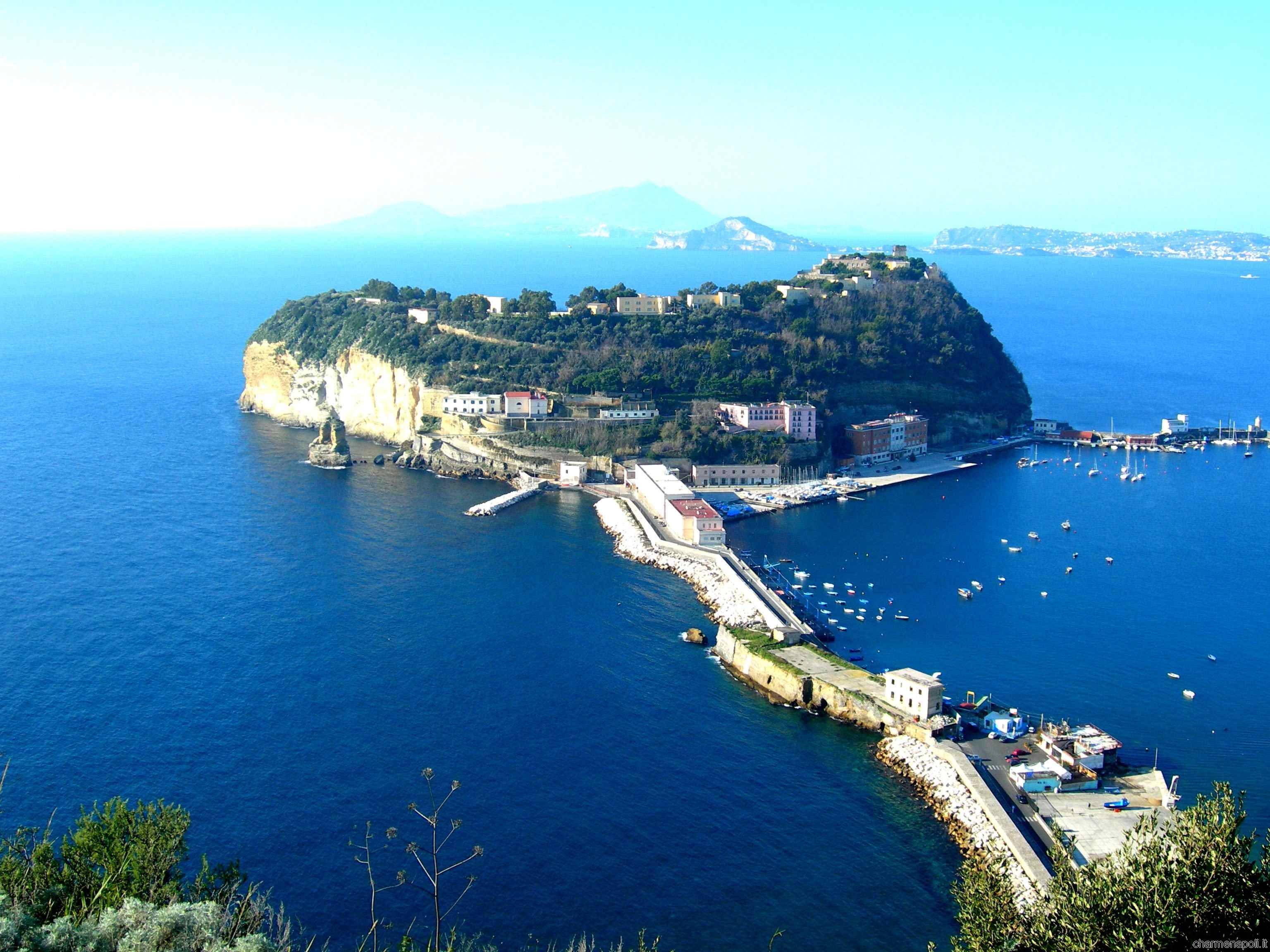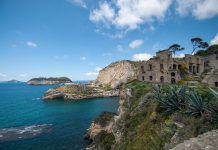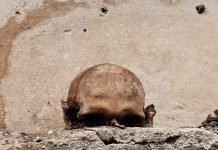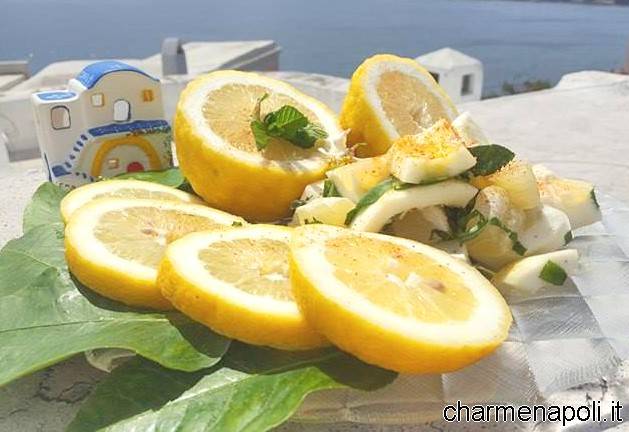Islands, rocks, and rocky points tower on the sea of Ulysses. Li Galli in Sorrento, Vervece in Massa Lubrense, the “Two Brothers” in Vietri, Capo d’Orso in Maiori. Pieces of land pulled away from the waves and used, more than two thousand years ago, by the Greek settlers like starting points for their future colonies or sightings and signalling points. Every creek, every piece of land from Sapri to Garigliano has them and they are reported in the international tourist guides. We will talk about the most famous ones, the ones that made father pass down to sons stories and legend about them.
Like the Scoglio di Rovigliano in Torre Annunziata, on the Southern side of the Gulf of Naples. Known in ancient times as Petra Herculis, in memory of a temple devoted to Hercules, the island with the remains of a 1500s fortress, derives its name from a Roman gens Rubilia or maybe from a plant called robilia. There is an old legend about this rock, passed down by Fra Simone, who wrote about that in the Cronicon Casinense (IX century). It is a story that takes us back to times when the Longobards dominated Southern Italy. [charme-gallery]Some soldiers, to resist against an incursion of the Saracenes, locked themselves on the island of Rovigliano. They were guided by count Orso, his wife donna Fulgida, and their son Miroaldo. In the end, the enemies won and the survivors were taken away as slaves, Miroaldo included. The count was hanged, and donna Fulgida, while trying to defend her husband, was hit and left half dead. When she woke up, she saw the hanging body of her husband. So every night since then the spirit of donna Fulgida wanders around Rovigliano rocks, calling her husband and her son.
Another small island in the sea of Parthenope is Nisida, connected with the mainland by a long bridge. Its name derives from Greek Nesís “island”, but also Nesida “small island”. It is told that during the I century B.C. it was the testimony of the suicide of Portia, the brave daughter of Cato Uticensis, and wife of M. Iunius Brutus, one of the killers of Julius Caesar. After the defeat and the death of her husband in Philippi battle, she decided to die swallowing live coals because nobody gave her a dagger to stab herself. (follow second part)

 Italiano
Italiano














